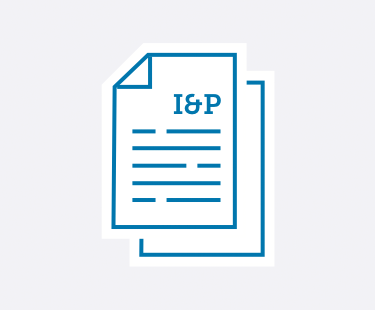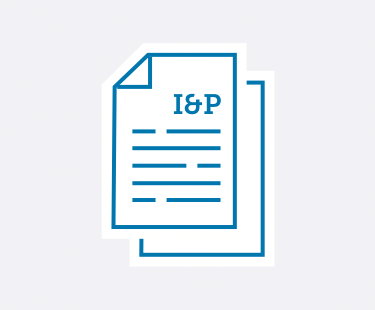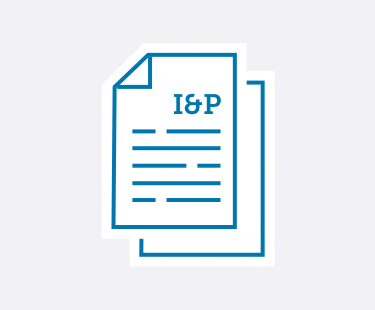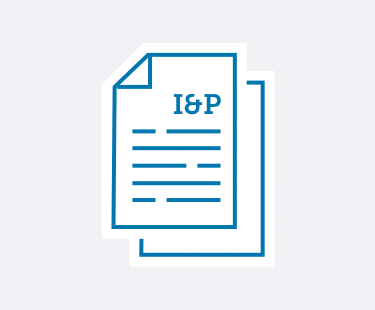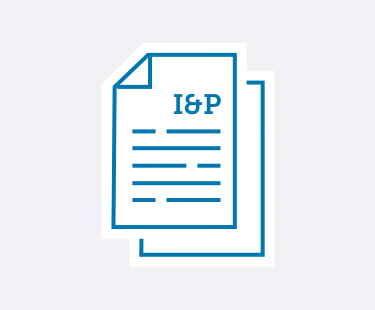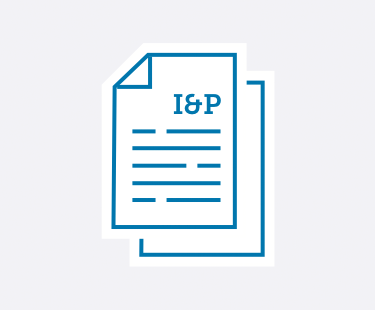

Learn practical strategies to handle emerging trends and leadership challenges in private schools.
No matter if you’re a School Head, Admission Director, Development Director, Board member, or any other private school administrator—Ideas & Perspectives®, ISM’s premier private school publication, has strategic solutions for the pervasive problems you face.
- Tuition not keeping pace with your expenses? In I&P, explore how to use strategic financial planning to create your budget and appropriately adjust your tuition.
- Enrollment dropping off? Discover how to implement the right admission and enrollment management strategies that engage your community—and fill your classrooms.
- Trouble retaining teachers? Learn how you can best support your teachers using ISM’s Comprehensive Faculty Development framework. Your faculty members will become more enthusiastic about their roles—which ultimately improves student outcomes.
- Fundraising campaigns not as successful as you’d hoped? Implement ISM’s practical advice and guidance to build a thriving annual fund, construct an effective capital campaign, and secure major donors—no matter your community size or location.
- Not sure how to provide professional development—for you and your staff? Learn ways to develop and fund a successful professional development strategy. You can improve teacher-centered satisfaction and growth, which in turn strengthens student-centered learning.
- Problematic schedule? You can master the challenges of scheduling with the help of ISM’s practical advice, based on our experience with hundreds of schools and our time-tested theories.
- And so much more.
I&P has shared targeted research, up-to-date insight, and sound theory with school leaders since 1975. More than 8,500 private school decision-makers find the answers to their schools’ administrative and governance matters in our advisory letter. We give you the strategic answers you need.
As an ISM Silver or Gold member, you not only receive issues online and in print 10 times a year, but you have access to 900+ articles in our web archive. Need help? It’s at your fingertips! Learn more and sign up for ISM's membership here.
Search
See the articles from our latest issue of Ideas & Perspectives.
Using Metric-Based Strategies to Set Your Tuition: How You Emerge From a Recession Depends On It!
Volume 45 No. 8 // June 22, 2020
In the aftermath of a major crisis, fear surrounding enrollment over the next few years can be rampant. Time and research will tell if reality will match schools’ fears. Private schools experienced this level of uncertainty in the aftermath of the Great Recession, which officially occurred betwe...
1. Already a member? Click here to login.
2. Not a member? Click here to become a member.
3. Not sure? We'll help you figure it out.
Disruption: Effects on Your Strategic Financial Plan
Volume 45 No. 8 // June 22, 2020
For decades, ISM has recommended that Boards of Trustees, with their School Head and Business Manager, undertake strategic financial planning on a quadrennial cycle, unless economic or other exigencies intervene to dictate a shorter cycle. If you, as Board leader or School Head, face the possibility of a precipitous decline in your school’s enrollment demand for any reason—natural disaster, pandemic, economic reversal, or simply your draw-area demographic changing dramatically—consider the following steps in thinking about how to, or whether to, reshape your strategic financial plan.
1. Already a member? Click here to login.
2. Not a member? Click here to become a member.
3. Not sure? We'll help you figure it out.
Keeping Parent Complaints From Interfering With the Strategic Functions of the Board
Volume 45 No. 8 // June 22, 2020
As Chair of the Committee on Trustees (COT), you will be called on to take the lead in assisting your colleagues in dealing with one of the troublesome facts of private-independent school life: parental complaints made directly to Board members. Many parents think of their school’s Board of Trustees in the same way that they think of their local public school board. And, if that were true, their complaints would not violate that model, i.e., the public elects a public school board to represent their interests.
1. Already a member? Click here to login.
2. Not a member? Click here to become a member.
3. Not sure? We'll help you figure it out.
Mergers: Scandalous Nonsense or Strategic Alliance?
Volume 45 No. 7 // June 1, 2020
Just say the word “merger” in a room of School Heads and a cacophony of competing beliefs fills the room like some odious vapor. However, there is mounting, research-based evidence to suggest that mergers in the nonprofit sector create more robust, impactful, and efficient mission-driven organizations. ISM’s experience is that nonprofit Boards and Heads have difficulty discussing mergers because the strategy is frequently associated with leadership failure, financial distress, and operational chaos. Add to those fears professional and volunteer leaders’ investment of time, talent, and treasure, and strategic thinking all too often takes a backseat to immoderate organizational goals that never materialize. It has been said that passion blinds. Perhaps it’s time for some private schools to consider the strategic advantages of a merger.
1. Already a member? Click here to login.
2. Not a member? Click here to become a member.
3. Not sure? We'll help you figure it out.
Becoming a ‘Price-Value’ School: Concepts and Steps
Volume 45 No. 7 // June 1, 2020
When a private-independent school’s demographic changes dramatically, whether suddenly (by natural disaster, pandemic, precipitous deterioration in the national or regional economy, or other), or gradually over a period of years, the school’s leadership may need to examine the school’s marketplace stance and consider a shift. Such a shift might imply, specifically, that leaders of secular “Best-Product” or “Best-Process” schools weigh the pros and cons of shifting to the low-cost model traditionally occupied by many, but not all, Christian, and by some, but not all, Montessori schools. ISM labels this the “Price-Value” market niche.
1. Already a member? Click here to login.
2. Not a member? Click here to become a member.
3. Not sure? We'll help you figure it out.
Continued Support for the Faculty Is Essential in Times of Disruption
Volume 45 No. 7 // June 1, 2020
When schools face a disruption that results in financial uncertainty, often one of the first expense items cut is faculty professional development. A growth-focused faculty culture is a necessity, not a luxury. Devaluing professional growth could have serious implications for your school’s culture, enrollment, and professional excellence.
1. Already a member? Click here to login.
2. Not a member? Click here to become a member.
3. Not sure? We'll help you figure it out.
DISRUPTION! Leading in Uncertain Times
Volume 45 No. 6 // May 11, 2020
Disruption is not a new term in business thinking. Disruptions often occur in the business realm and come in many forms. A competitor designing a product or service similar to others in the marketplace—for example, using new technology—is a disruptor. And sometimes that new product or service can be far less expensive, eliminating competition. The printing press was such a disruption in 1450. Disruptions can also be sudden outside forces that change the face of a business. A natural disaster can be a disruptor. We only must look back a few years and recall Hurricane Katrina and listen to the stories of private school leaders in New Orleans to know firsthand the power of that natural catastrophe.Add to that the coronavirus.
1. Already a member? Click here to login.
2. Not a member? Click here to become a member.
3. Not sure? We'll help you figure it out.
Enrollment and Budget Decisions During Times of Crisis
Volume 45 No. 6 // May 11, 2020
The school year was moving along well. The economy was strong, early reports of re-enrollment were excellent, and inquiries were up. An ideal scenario was developing for full enrollment and easy budget planning. And suddenly, an unexpected and catastrophic fiscal emergency occurs, creating enrollment concerns, threatening jobs, creating financial stress for your families, and threatening the school’s financial viability.
1. Already a member? Click here to login.
2. Not a member? Click here to become a member.
3. Not sure? We'll help you figure it out.
The Head’s Role in Clarifying Your Business Manager’s Responsibilities for the Trustees
Volume 45 No. 6 // May 11, 2020
The School Head and Business Manager relationship is critical for the school’s effective operation. The connection with the Board can complicate this relationship because the Business Manager’s role is vital for an effective Board. The Business Manager’s job is complex. It includes: strategic planning, budgeting, cash management, accounting, collections, human resources, technology oversight, facilities management, food service, transportation, risk management, and vendor management.
1. Already a member? Click here to login.
2. Not a member? Click here to become a member.
3. Not sure? We'll help you figure it out.
Faculty Evaluation: Essential Expectations
Volume 45 No. 5 // April 20, 2020
In ISM’s approach to Comprehensive Faculty Development, evaluation and growth are treated as two distinct processes. We base faculty evaluation solely on a set of Essential Expectations that constitute critical areas of performance. These expectations go beyond teaching and pedagogy to include behaviors expected of a model employee, colleague, and professional.
1. Already a member? Click here to login.
2. Not a member? Click here to become a member.
3. Not sure? We'll help you figure it out.
